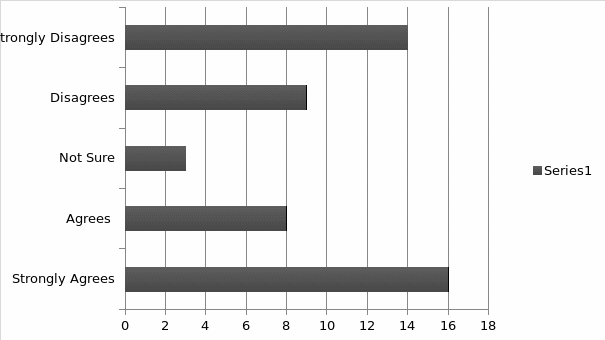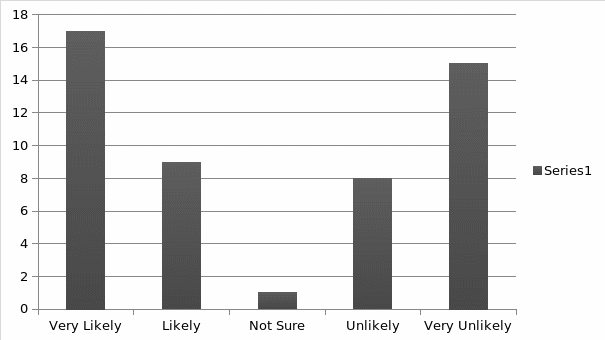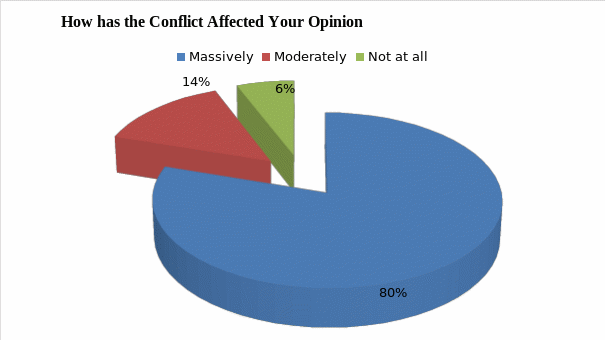Introduction
Presumption of Innocence Law is a fundamental principle in the Islamic legal structure that is meant to protect a suspect from unfair intimidation before he or she is proven guilty. This is a principle of fairness, meant to ensure that the law is protective of the innocent individuals who may be wrongfully suspected of having committed an offence. According to the research work by Al-Kisswani (2013), presumption of innocence law has been largely applied in the judicial systems in the Arabic Islamic countries, especially those in the Middle East.
It is important to note that there are cases where the presumption of innocence law has been ignored, and innocent people were subjected to unfair sufferings because of the offence committed by other people. The ongoing military conflict between Palestine and Israel is a clear indication of how nations are always willing to ignore this principle in the face of an international conflict. Israeli teenagers went missing, and were later found murdered, in what the Israeli authorities considered an aggressive attack by the Hamas in Gaza.
What has followed is a massive bombing of the Gaza strip by the Israeli forces that resulted in the death of over 1200 Palestinians, and 53 Israelis. Majority of those killed were civilians, mostly women and children who had nothing to do with the attacks on either side of the warring parties. They were innocent individuals who suffered for the offences committed by other people. This has defeated the principle of fairness as stated in the Presumption of Innocent Law. In this study, the researcher will be interested in determining the perception of the Middle East graduate law students on the application of Presumption of Innocence Law, especially in light of the ongoing conflict between Palestine and Israel.
Literature Review
Scholars have conducted broad research on the principle of fairness as stipulated in the Presumption of Innocence Law. The book The Presumption of Innocence written by Al-Kisswani (2013) clearly outlines how this law has been applied in many countries in the Middle East. According to Al-Kisswani (2013), the Presumption of Innocence Law is getting ignored increasingly in many countries as the society tries to fight the modern day sophisticated nature of crime. This argument is strongly supported by the findings by Kant (2008). There has been an attempt by the people responsible for implementing the law to ignore this principle of fairness, especially when they were dealing with suspects considered to be hard criminals or enemies of the state. The Middle East remains one of the most volatile regions in the world today.
The research by Al-Kisswani (2013) reveals that Presumption of Innocence Law is a major principle that guides criminal and civil justice system in the Islamic legal systems. Al-Kisswani (2013) says, “Islamic law has dedicated many principles and rules based on the Presumption of Innocence Law or the assurance of it whether it is related to the right of the defense or the right of the accused” (p. 7). When one is arrested, it is important to appreciate the fact that there are chances that the courts can find a person innocent of the offences leveled against him or her. For this reason, it is important to ensure that his or her rights are not abused till the time the law will find him or her guilty (The Palestinian Basic Law, 2003). The need to uphold the Presumption of Innocence Law stems from the desire to avoid cases of punishing the innocent people.
There are cases where innocent individuals are subjected to pain and torture for a crime they did not commit. When the truth about their innocence is later discovered, it is always too late to undo the pain and sufferings that such an individual was subjected to. There are cases where individuals die in detention due to the inhuman approaches that are used in the interrogations by security agencies. This means that the possibility of killing an innocent individual is high when such systems are allowed to prevail in this region. This is very common when dealing with the prisoners of war. However, Al-Kisswani (2013) warns, “Our mutual responsibility is to respect one another, and we should not confuse the right with power” (p. 2). The society needs to realize that the constitution gives us the responsibility to respect the right of every one, including suspects.
According to Al-Kisswani (2013), the fundamental principle of presumption of innocence law is that the accused will remain innocent until the justice system proves otherwise. It is a fact that once the investigation starts, the suspect may have to forego some rights, such as the freedom of movement. However, Arafat (2001) says that this should not be used as the basis of abusing his or her other rights until the law determines the case. In order to gain insight into this topic, it may be necessary to review some of the philosophical thoughts of some scholars that are relevant to this principle.
Philosophical View
Nietzsche’s ‘God is Dead’ Philosophy
Friedrich Nietzsche is one of the greatest philosophers who ever tried to explain the ethical behavior of human beings from the religious perspective. According to Adamson (2013), “Nietzsche’s works express a fear that the decline of religion, the rise of atheism, and the absence of a higher moral authority would plunge the world into chaos” ( p. 1). What Nietzsche meant when he said that God was dead is that the world is slowly drifting away from religion that has kept the societal fabric strong and morally upright. The law may state what one should do, but it cannot form a conviction in one’s heart if he does not believe in it.
However, religion takes over the power of an independent thought from an individual. It makes one believe in some principles that would closely define his or her actions. Among the Muslims, there are some fundamental teachings about ethics that make one behave like a rational human being. They know that God is watching their actions and will judge them accordingly (Druart, 1993).
Other religious groups also share this belief. Their guiding principle is that God is watching their every action. However, a new breed of people is arising where religion is not given any importance in one’s action. These individuals are no longer afraid of the wrath of God. This is why Nietzsche is saying that to this group, God is dead, and their actions wholly depend on what they view as right. For this reason the presumption of innocence, as taught among the Islamic people, ceases to hold any meaning to some people. When they are convinced that a suspect committed a given crime, they do not see any sense of treating such an individual with fairness because they are deemed guilty.
Philosophical View of Kant
Kant’s moral philosophy has been used widely in defining what is considered good in the society. Kant (2008) says, “Nothing in the world- or out of it- can possibly be conceived that could be called ‘good’ without qualification” (p. 5). According to Kant, every human being strives to do what is good in order to achieve self-satisfaction. The human conscious is always at peace when one feels that he or she has done what is good.
However, Kant argues that for something to be considered good there must be a justification to support the claim. This is directly reflected in the judicial system. When one is accused of a crime, it is the responsibility of the authorities to do what is good to the suspect. In this sense, the authority is expected to consider the suspect innocent until the judicial system proves otherwise (Fakhry, 1991). One should not make a personal decision, without any justification, and start treating the suspect as a criminal. Any form of torture before one is found to be guilty will, therefore, be considered a bad practice.
Methodology
Data Collection
The primary data was collected from the Master’s of Law students in Palestine. The researcher specifically sampled 50 graduate students of Alquds University. The researcher was interested in determining how the perception of these students towards the Presumption of Innocence Law might have changed due to current events in this region. The ongoing war between Israel and Palestine must have shaped the perception of these graduate students in Palestine. The opinions of the respondents will be given numerical values through the use of Likert Scale in order to facilitate the analysis. The data will be specifically collected from the graduate students of Alquds University. The participants will be expected to give their views about the application of the law of presumption of innocence in the Middle East region. From their views, the researcher will be able to determine their perceptions towards this issue, and the impact of the ongoing events on this perception.
Research questions
In this survey, the researcher will use précis questions that will allow the analysis of the graduate students answers to the perception of the application of this law and if they do believe that presumption of innocence is applied unconditionally without prejudice. The following are the research questions that will be used in this study.
- Do you believe that presumption of innocence is applied unconditionally without prejudice in this region?
- Do you believe that there is a deliberate attempt by the stakeholders in the legal system to defeat the principle of innocence till proven guilty?
- What is the impact of the ongoing conflict between Palestine and Israel on your perception towards Presumption of Innocence Law?
The response obtained from these participants was coded and then analyzed using simple mathematical methods.
Ethical issues
It was considered ethical to ensure that the real identity of the respondents in this research is not revealed to avoid unfair victimization by the society because of their opinion. Due to the sensitive nature and straightforward questions of the survey, the researcher will ensure that the participants remain anonymous. In order to achieve this, the respondents will be picked randomly and assigned numerical codes. The participants will pick the forms from the assigned locations, and drop them back after filling them anonymously. This way, even the researcher will not be in a position to identify their real identity.
Analysis and Findings
The primary data collected from the Master’s of Law students at Alquds University in Palestine was analyzed mathematically in order to obtain their response as shown in the sections below.
Results
Do you believe that presumption of innocence is applied unconditionally without prejudice in this region?

There was a sharp difference in the participants’ opinions on this issue. The percentage of those who believed that this law is applied unconditionally without prejudice was 48% while those who believed that it is not applied unconditionally was 46%. Three students were not sure of the way this law was applied. The researcher noted the opinions of the respondents were largely influenced by their perception towards Hamas, the Palestinian government, and the war with Israel. Most of the participants did not base their opinion on the legal knowledge they have learnt at school. It was evident that most of their opinions were defined by their political affiliations.
Do you believe that there is a deliberate attempt by the stakeholders in the legal system to defeat the principle of innocence till proven guilty?

Just like in the first question, the respondent’s view on this question was sharply varied. While 52% of the participants believed there was a deliberate attempt by the stakeholders to defeat the principle of innocence till proven otherwise, 46% had a contrary opinion. Only 2% of the participants were not sure. It was evident that the participants’ opinions were shaped by their political affiliations, and the current conflict between Palestine and Israel. The researcher developed interest in determining how much the responses given by the participants were influenced by the ongoing conflict between Palestine and Israel. The following question was meant to determine this impact.
What is the impact of the ongoing conflict between Palestine and Israel on your perception towards Presumption of Innocence Law?

The researcher confirmed that the ongoing conflict between Palestine and Israel played a major role in defining their perception towards the Presumption of Innocence Law. 80% of the participants noted that the ongoing events in Gaza massively influenced their perception. While some believed that the prisoners of war should be denied the immunity that comes with this law, others had a contrary opinion. 14 percent of the participants noted that their opinion was moderately influenced by these events. Only 6% felt that the ongoing events in Gaza had nothing to do with their perception.
Conclusion
From this study, the researcher realized that the Presumption of Innocence Law has largely been ignored in most of the Arabic Islamic countries such as Palestine. According to the philosophical arguments presented in the literature review, the only way of upholding this law is for the relevant authority to maintain ethics because there is already a law protecting the suspects. The data from the primary sources clearly indicate the varying opinion of the public about how well the system in Palestine is implementing this law without prejudice. The primary and secondary sources of data are in agreement that application of this law has been marred by prejudice. While some suspects are given the immunity that comes with this law, others are always denied, especially if they are considered prisoners of war. The ongoing conflict between Palestine and Israel has had a massive influence on the perception of the participants towards the Presumption of Innocence Law.
References
Adamson, P. (2013). Balancing Acts: Arabic Ethical Literature. History of Philosophy Without Any Gaps. Web.
Al-Kisswani, J. (2013). Presumption of Innocence. Jordan: Waelbooks Publishing. Web.
Arafat, Y. (2001). Penal Procedure Law No. 3. Official Gazette, 442(1), 1-97. Web.
Druart, T. (1993). Al-Kindī’s Ethics, Review of Metaphysics, 47(1), 5. Web.
Fakhry, M. (1991). Ethical theories in Islam. Leiden: E.J. Brill. Web.
Kant, I. (2008). Groundwork of the metaphysics of morals. Lanham, MD: Start Publishers. Web.
The Palestinian Basic Law: Amended Basic Law. (2003). Web.